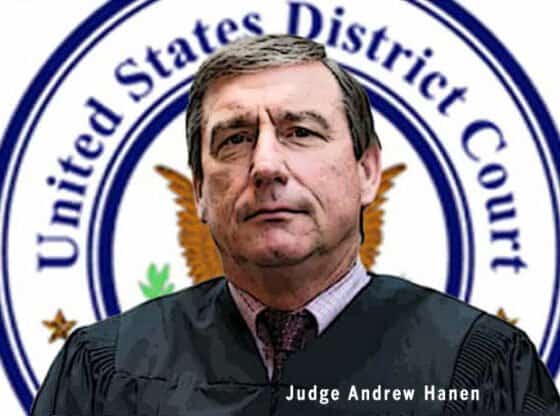Unveiling a Legal Ruse: Lawyers Sanctioned for AI-Generated Deception in Landmark Case
Two New York lawyers sanctioned with their law firm have been fined $5,000 by a federal judge for using six fake case citations generated by an artificial intelligence chatbot, ChatGPT, in a legal brief.
Lawyers Sanctioned For Carelessness
The lawyers, Steven Schwartz and Peter LoDuca, and their firm Levidow, Levidow & Oberman, were representing a client who sued Colombian airline Avianca for an alleged injury during a flight.
The lawyers admitted that they used ChatGPT to help research the brief and unknowingly included the false citations in their filing. ChatGPT is an AI tool developed by OpenAI that can generate realistic text based on a given input.
The judge, P. Kevin Castel, found that the lawyers acted in bad faith and made “acts of conscious avoidance and false and misleading statements to the court.” He also said that the lawyers “continued to stand by the fake opinions” after the court and the airline questioned whether they existed.
$5,000 Fine, Client Case Dismissed
The judge ordered the lawyers to pay a $5,000 fine in total and to notify the judges who were identified as authors of the fake cases of the sanction. He also dismissed the personal injury case as it was filed too late.
AI OK For Research
The judge wrote that there is nothing “inherently improper” in lawyers using AI “for assistance,” but he said lawyer ethics rules “impose a gatekeeping role on attorneys to ensure the accuracy of their filings.”
Declining Number of Sanctions on Lawyers
Over the past decade, the number of court-ordered sanctions on lawyers has experienced a steep decline, as revealed by an in-depth analysis conducted by Bloomberg Law. The article highlights a trend where instances of attorneys facing disciplinary actions or fines for misconduct have significantly decreased.
Some say this decline raises questions about the effectiveness of the legal system’s ability to hold lawyers accountable for unethical practices.
The analysis underscores the importance of examining the underlying causes contributing to this decline. One possible factor is the increasing complexity of legal cases and the sheer volume of litigation, which may place additional burdens on judges and make it more challenging to identify and address attorney misconduct. Moreover, some argue that the erosion of civility and professional standards within the legal community could be contributing to the decrease in sanctions.
Another potential explanation offered in the article is the rise of alternative dispute resolution mechanisms, such as arbitration and mediation, which have gained popularity as a means of resolving legal disputes outside the traditional courtroom setting. These alternative avenues often operate with more flexible rules and procedures, potentially leading to fewer instances of disciplinary actions being pursued against attorneys.
While the decline in lawyers sanctioned by court-order may be attributed to multiple factors, it raises concerns about the level of accountability within the legal profession. Sanctions play a crucial role in maintaining the integrity of the justice system, ensuring that attorneys uphold ethical standards, and protecting the interests of clients and the public. The legal community, along with regulatory bodies, must carefully examine these findings and consider implementing measures to promote greater transparency, accountability, and ethical conduct among lawyers.










